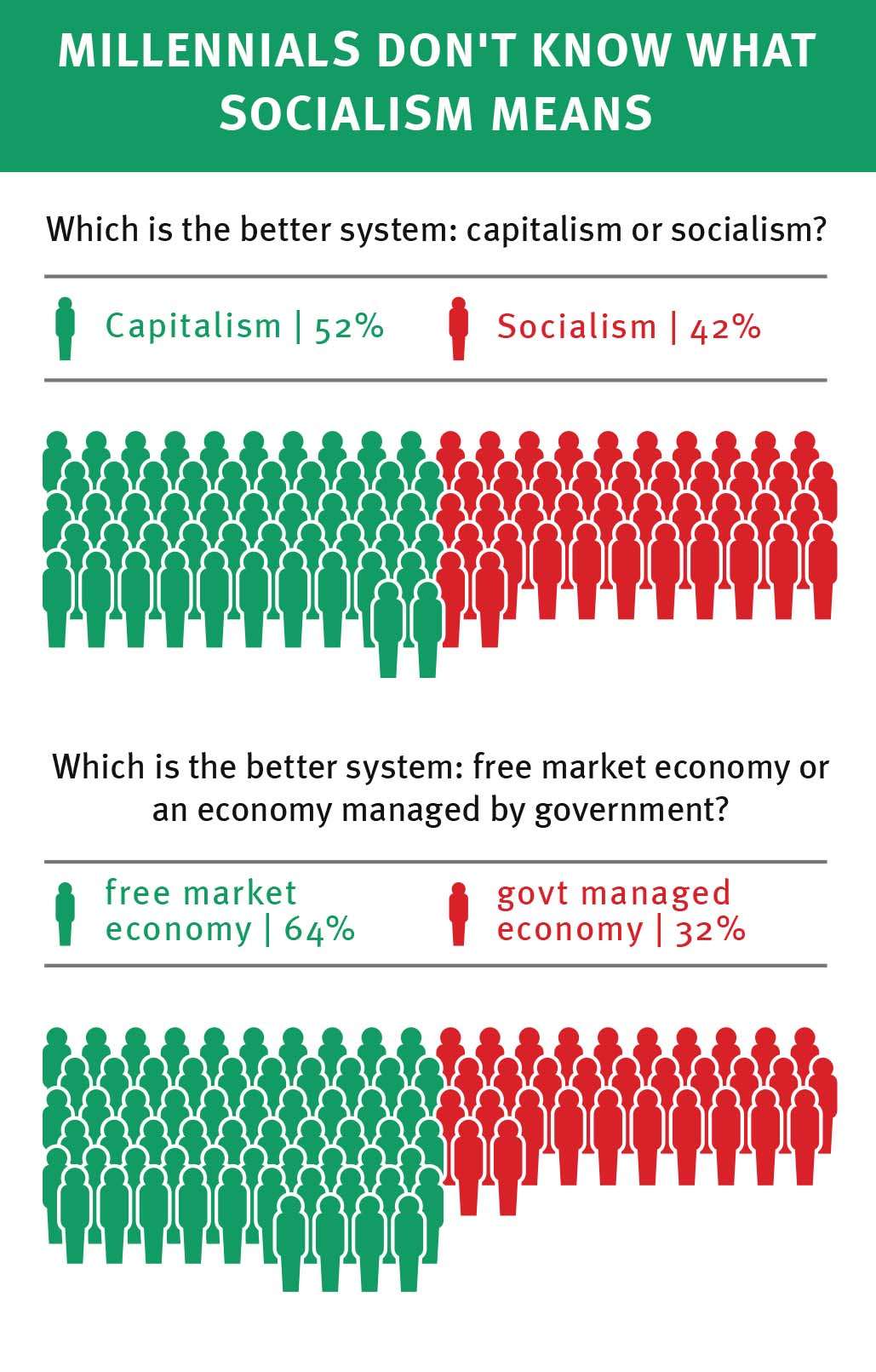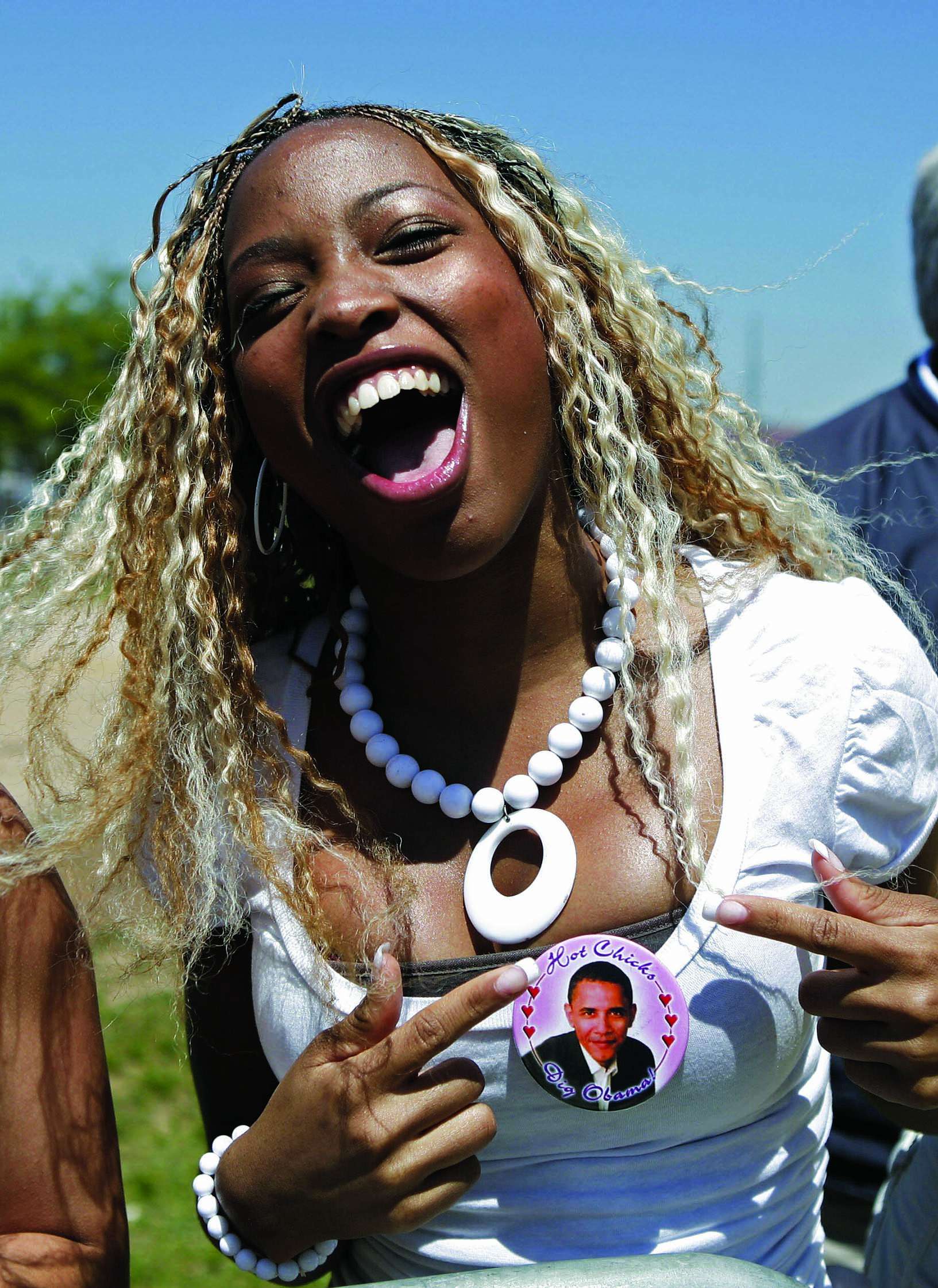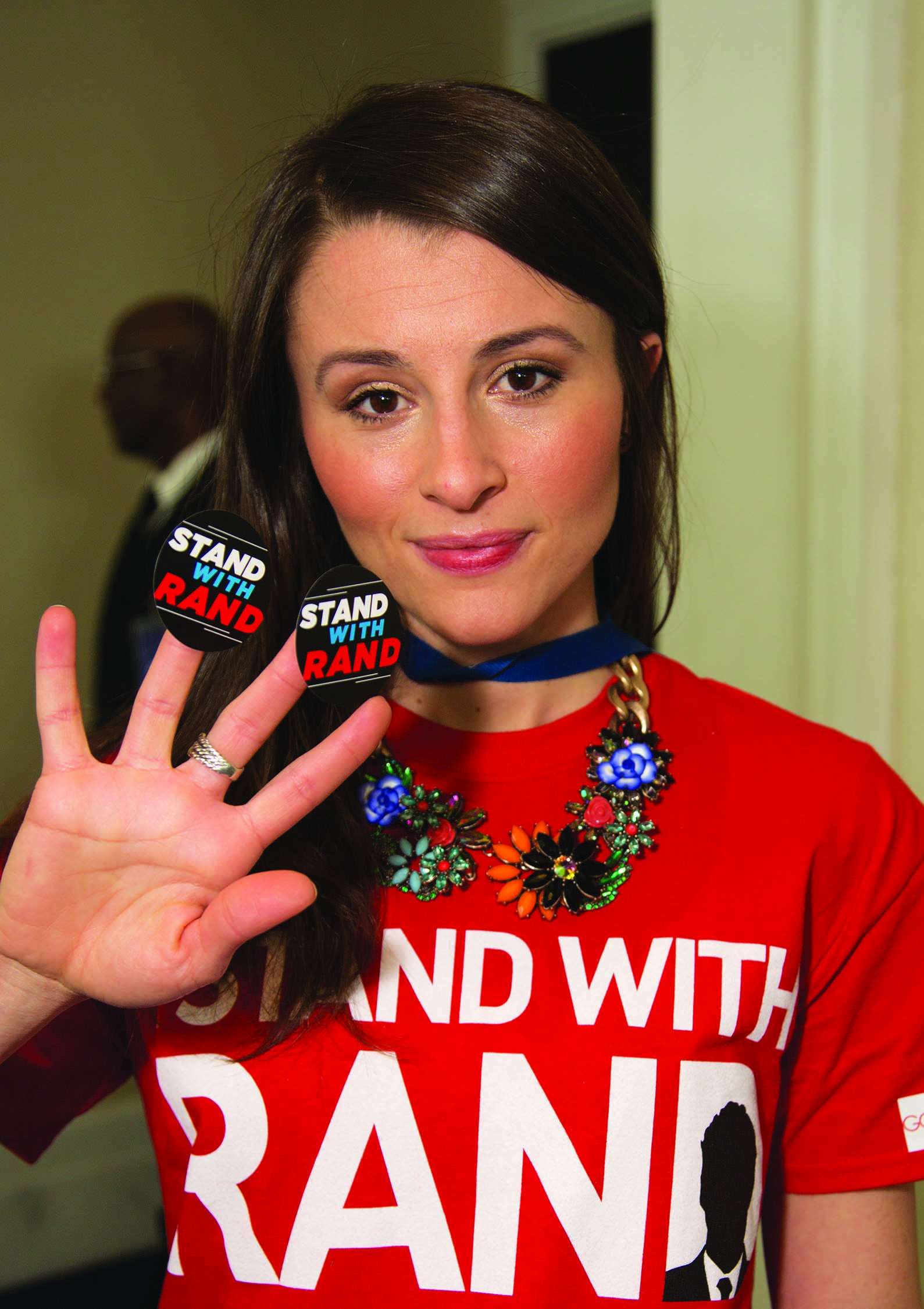The Millennial Scramble
Political parties and activist groups are competing for a generation suddenly up for grabs.
After the 2008 elections, you could understand why Democrats got cocky about their hold on the millennial generation. After all, Barack Obama had slaughtered John McCain among the under-30 presidential vote by a historic 66 percent to 32 percent, accounting for 7 million out of Obama's 9 million vote margin of victory. Even more impressive for Democrats—and ominous for Republicans—young people maintained that enthusiasm in down-ballot races, favoring Team Blue over Team Red for Congress by 63-34 percent.
"It's Official: Millennials Realigned American Politics in 2008," crowed the headline on a post-election analysis by New Democratic Network fellows Michael Hais and Morley Winograd, published at The Huffington Post. "Contrary to the hopes of many Republicans, the Millennial Generation's support for Barack Obama is not a one-time phenomenon. Millennials are every bit as supportive of the Democratic Party as they are of Obama personally," Hais and Winograd wrote. "As with previous civic generations, they are likely to vote a straight ticket for their preferred party for the rest of their lives. The Millennial Generation is ready to take its place as America's next great Democratic civic generation, just as their GI Generation great grandparents did nearly 80 years ago. Welcome to the Millennial Era."
What a difference six years makes. Obama's unprecedented 34-point youth-vote victory dropped to a still-impressive 23-point win against Mitt Romney in 2012 (albeit with weaker turnout), but then the news cycle started messing up the tidy generation gap narrative. First came the March 2013 filibuster by Sen. Rand Paul (R-Ky.) over the administration's legal rationale for potentially droning American citizens to death, an act that attracted support from a variety of groups not normally inclined toward Republicans. Then former National Security Agency (NSA) contractor Edward Snowden began issuing a series of spectacular revelations about a surveillance state that had grown far more powerful than Obama or his chieftains had ever hinted. With youth unemployment and student loan obligations maintaining their record highs, the president's bedrock support among young voters began to crumble: An Economist/YouGov poll in August 2013 showed a 14-point drop among 18- to 29-year-olds just in the first two months after the Snowden leaks.
This overnight plunge in youth enthusiasm for Democrats has set off a mad scramble. D.C. has played host to a constant stream of millennial-themed events, culminating in an inaugural "Millennials Week" throughout the Beltway in June 2014. The House Republican Conference held a "millennial meet-up" that asked young people to get to know Republican candidates. The Center for American Progress has sought to keep kids on the left with events such as "The Obama Coalition in 2012 and Beyond." The Huffington Post started looking for a millennial outreach director (as did the Reason Foundation, the nonprofit that publishes reason). Prominent Republicans such as Rand Paul have gone on college barnstorming tours, stressing civil liberties and criminal justice reform. Democratic champions like Sen. Elizabeth Warren (D-Mass.) talk constantly about forgiving student loans.
(Article continues below)

The White House, desperate to shore up support for the Affordable Care Act among a skeptical generation whose enrollment the law relies on, has circulated a series of mostly groan-inducing Internet memes, and dispatched the president himself to Zach Galifianakis' surrealist Web talk show Between Two Ferns, a twentysomething favorite. New groups on the right, such as Generation Opportunity, have countered with youth-oriented videos showing creepy Uncle Sam getting up close and personal-between a young woman's legs, in fact-in the name of the intrusive health law.
Both sides have begun to realize that just because Instagramming, beard-growing, petition-signing millennials have been good to the Democrats, that does not make them good Democrats. Underneath their liberal exterior (which is based mostly on social issues; see "Generation Independent," page 22), millennials are loyal neither to brands nor political parties. A majority of them now identify as political independents, up from 34 percent a decade ago, according to the Pew Research Center in a March 2014 report. They are more socially liberal than the Democratic Party, but also more economically centrist. And their concern for civil liberties has slammed face-first against a president who has betrayed most of his 2008 campaign promises to reverse the executive-branch expansion of George W. Bush.
"All we are seeing is these epic fails, left and right," says Jackie Bodnar, a millennial and the communications director at the Tea Party-affiliated FreedomWorks, which has been moving aggressively into youth-oriented issues such as Internet privacy. "Skepticism is a great opening for people like us to come in and talk about principals and the actual role of government."
Republicans see millennials not only as a bloc with a political upside, but as an ideologically distinct group whose values can help guide the party out of a demographic death spiral. "Young people are increasingly libertarian in their views," says 34-year-old Rep. Justin Amash (R-Mich.), often referred to as Ron Paul's heir apparent in the House of Representatives. And "young Republicans are overwhelmingly libertarian. It's important that we speak to this next generation of voters, who will make up a significant proportion of our party."
If the 2010 midterm elections are any guide, then millennial turnout this November will be lackluster and Republicans will do better than forecasted. But the more intriguing long-term question is whether any party or ideological group will be able to lay claim to the unclaimed generation.
From Obamamania to the Tea Party?

Obamamania among the young was truly something new, and cannot be reversed simply by a season or two of bad headlines. After all, the youth-vote spread was only nine percentage points in favor of Democrat John Kerry in 2004, and in 2000, George W. Bush and Al Gore essentially split it. Bill Clinton won the kids in both his elections, but so did Ronald Reagan.
And votes weren't the only way young people helped Obama, either. The 2008 campaign energized college students in a way not seen since the 1960s. Students formed a vital backbone of Obama for America, registering voters, packing rallies and events, and maximizing the campaign's use of social media. But there was a libertarian rumbling underneath the "Yes We Can" avalanche.
"Obama obviously had a huge appeal to younger voters," says W. James Antle III of The Daily Caller News Foundation. "On the other side, so did Ron Paul."
The Ron Paul "rEVOLution" was an utterly unpredicted hit on college campuses, where the septuagenarian Republican drew overflow crowds with his message of radically smaller government, opposition to the Federal Reserve, and an end to the Iraq War. "We are now spending nearly a trillion dollars a year to maintain an empire," Paul said at a typical University of Michigan rally in October 2007, in front of thousands of students. "Bring the troops home!" The crowd erupted in applause.
Paul's 2008 presidential campaign gave rise to two thriving campus groups: Young Americans for Liberty (YAL), which is officially affiliated with Ron Paul, and Students for Liberty (SFL), which is not. Since its founding, YAL has added 527 chapters at campuses across the nation and now boasts a network of more than 160,000 activists. SFL's annual conference grew from an initial gathering of just 100 students in blizzard conditions at Columbia University in 2008 to a premiere event that now features 1,300 students from literally all corners of the globe. (SFL has chapters in Africa and South America.)
While the infrastructure for campus libertarianism was taking hold, the millennial lack of interest in the 2010 midterm elections helped to paradoxically make a more millennially attractive, libertarian-flavored politics possible. With Obama's core supporters sitting on their hands, a new crop of Tea Party Republicans arrived on Capitol Hill. While these new legislators were more fiscally conservative than either millennials or even the mainstream GOP, they were also considerably younger, and some had views on civil liberties and foreign policy that leaned much more in the direction of Ron Paul. Prominent among them were Justin Amash, Sen. Marco Rubio (R-Fla.), and Rand Paul.
Elected in a wave of popular revulsion against government spending, bailouts, and Obamacare, the Tea Party generation (and its "Liberty Movement" subset) has also been on the leading edge of such not-your-grandfather's-GOP issues as criminal justice reform, relaxation of federal marijuana laws, and rolling back the surveillance state. As millennials have become less enthusiastic about the Democratic Party, the Republican Party has become more open to the social issues millennials care about.
"If we can get these guys like Rand Paul who are out there, not just speaking to millennials the right way, but speaking to large swaths of the population about civil liberties issues," says Whitney Neal, grassroots director at FreedomWorks and also a millennial, "you can see that the youth vote will gravitate the right direction. I do think they are up for grabs."
In a July interview with Reason TV, Rand Paul acknowledged that the GOP has youth-outreach problems on issues such as gay marriage and marijuana legalization, but stressed that much of the partisan divide could be made up through appealing to millennials' sense of online privacy.
"I think Republicans can only win in general if they become more live-and-let-live," he said. "I think that the 'live and let live, agree to disagree' kind of amalgamation of people in the party will allow us to be big enough to win. I think [there are] also some other [promising] libertarian issues, like right to privacy, the NSA overzealousness. Young people are concerned about their cell phone, that's the main thing they do with every hour of every day. I think if we became the party that's going to protect their privacy, you could get a large switch of Republican vote."
Tea Party pols like Paul and Amash may be rising stars, but they're also in the ideological minority within their own party and frequently butt heads against party leadership and major donor groups. Amash in August survived a nasty primary challenge against Brian Ellis, a crony corporatist and national security hawk whose attack ads characterized the libertarian Republican as "Al Qaeda's best friend in Congress." Amash's prior deviances have cost him committee jobs and led to an icy relationship with House Speaker John Boehner (R-Ohio).
Amash, who famously posts explanations of all his congressional votes on Facebook, says much of these intra-GOP differences of opinion and tactics can be chalked up to a generation gap. He and his Liberty Movement comrades are much more likely to speak out against NSA spying and drone warfare, much more stubborn about holding the line on spending, and much less likely to use the federal government to pursue a socially conservative agenda (even though he, like Rand Paul, is socially conservative and against abortion).
"Young people want a Republican Party that believes in limited government and economic freedom and individual liberty," Amash says. "But they want a party that also acts on it."
Even if the Amashes of the world were dominant within the GOP—and they're not—Republicans would be hard-pressed to narrow the generation gap much more without a concerted outreach effort. So the Republican National Committee (RNC) has initiated a program called "Campus Captains," in which college conservatives are encouraged to spend time talking to their friends about alternatives to liberal ideas, whether in person or on social media. It's a significant change of tactics for the GOP, which until recently considered youth outreach a poor use of campaign resources.
"Due to the Obama economy, millennials are stuck at home with their parents, unable to find work," says RNC Deputy Press Secretary Raffi Williams, 25. "Millennials want the opportunity to achieve their American Dream, but under Obama they have seen the American Dream slip away."
Still, Democrats have a powerful weapon in their arsenal to keep millennials on the reservation: money, or the absence of it in most kids' wallets.
Generation Debt
Democrats possess a clear advantage on what is perhaps the quintessential millennial issue: student loan debt. College graduates collectively owe more than a trillion dollars in loan debt to the federal government. Seven out of every 10 students who graduated in 2012 finished college with debt, at an average of more than $25,000 per borrower, according to the Project on Student Debt. The cost of attending university has risen dramatically over the last decade—40 percent at public undergraduate universities, according to the National Center for Education Statistics—vastly outpacing the rate of inflation. And in an economy that has been sputtering for nearly a decade, those degrees no longer translate to well-paid jobs, leaving hundreds of thousands of graduates either unemployed or underemployed in jobs that have little to do with their education.

In the Reason-Rupe poll of millennials, 54 percent said the government should fully fund college educations for everyone. And Democrats are falling over themselves to make students believe that's exactly what they will provide.
The Obama administration has repeatedly rewritten the rules on federal student loans, by executive fiat in some cases and with Republican legislative support in others. In 2012, the president convinced Congress to approve a one-year extension on a supposedly temporary subsidized student loan rate of 3.4 percent. The following year, his administration backed a bipartisan bill that again prevented the subsidy from expiring, this time by indexing the rate to Treasury bonds. And in June 2014, he issued an executive order expanding the circumstances under which debts could be forgiven entirely. Debtors who enter government service can now be absolved of further repayment after 10 years. And Democrats take every opportunity to propose going even further.
Several Democratic politicians have suggested subsidizing student loan debt via the Treasury Department; progressive darling and possible presidential contender Elizabeth Warren has repeatedly proposed bills to shift the college payment burden off the shoulders of debt-saddled millennials and onto the backs of taxpayers.
Congressional Republicans have killed off all of these economically dubious proposals so far. But this just gives Democrats more ammunition for arguing that the GOP is the enemy of the debt-ridden young. After Republican Senate Minority Leader Mitch McConnell (R-Ky.) filibustered Warren's debt relief bill in June, Rob Flaherty, Youth Media Coordinator for the Democratic National Committee, wrote a fiery post at a D.C. lifestyle blog, In the Capital, concluding: "What better time is there to discuss how President Obama and the Democrats are helping millennials succeed in today's economy than the very same week that Republicans decided to hose them?"
Warren has made the same argument at numerous campaign stops around the country on behalf of Democratic candidates. "When you've got a choice between billionaires and students, Mitch McConnell says it is more important to protect the billionaires," she said during a June 2014 speech in Kentucky on behalf of Alison Lundergan Grimes, McConnell's Senate opponent this November.
Indeed, just as Obama's political star has fallen, Warren's has risen. A former Harvard University professor, Warren has successfully channeled populist outrage over income inequality into a rising political movement drawing no shortage of support from Occupy Wall Street-type millennials.
Adrian Madriz was an organizer for the Obama campaign during his undergraduate studies at the University of Michigan in 2007. He rarely took off his campaign T-shirt. Six years later, his enthusiasm for Obama has waned, and he expects to be "passively voting for the eventual [Democratic] nominee," he says. A Warren candidacy, however, would stir his passions and convince him to "actually be involved in politics again."
What's the non-Democratic counter-argument to more subsidies and debt forgiveness for student loans? That government interference in higher education is the root of the cost problem, not the answer. And that at some point, you just start running out of other people's money.
"That game is ending," says Amash. "Young people recognize that there is not an unlimited pile of money in government that can be handed out. They want opportunity and they want the cost of education to come down." But "the more the government inserts itself, the higher the costs of education go."
Bodnar of FreedomWorks is similarly optimistic that millennials have grown skeptical of big government solutions to their financial troubles. "That argument only has so much clout for so long," she says. "They were promised a lot of things, and then they graduated with no jobs because the company that was going to hire them didn't exist anymore."
No Loyalty
Millennials are often described, with more than a bit of a sneer, as the new "me" generation. These are the amateur photographers who invented the selfie, the aspiring notaries that began posting their every waking thought and routine habits on social media. But precisely because today's overconfident, underemployed young see themselves as awesome, dynamic individuals in control over their own destiny, they may be impossible to pin down to one ideology or party for very long.
It would be ludicrous to expect this kale-fed cohort to stay loyal to a political movement that was cool a million years ago, in 2008. After all, Instagram didn't even exist in 2008.


Show Comments (13)